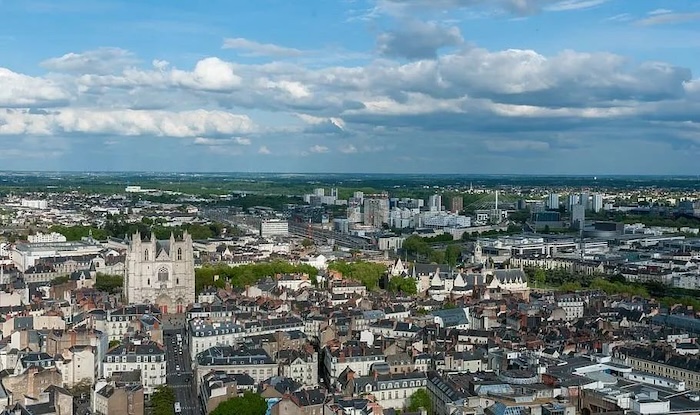Florence, Italy-Digital development promotes green and low-carbon development
Green and low-carbon development is the main direction of building a smart city in Florence. Currently, Florence has replaced its road lighting with 30,000 LED lights, saving 10 million kilowatt-hours of electricity and reducing 12,000 tons of carbon dioxide emissions per year. Florence has also launched projects to improve energy efficiency in the suburbs through smart grids and smart lighting.

Florence actively uses intelligent technology to improve traffic operation efficiency. Smart trams in trial operation are installed with sensors and radar, and stations are installed with data collection equipment. Eduardo Queies, coordinator of the smart tram project, said the project aims to create "smart areas" for cities and reduce the use of private cars to promote sustainable development.
At present, Florence is building a smart city control room, which will become a central system for processing real-time urban traffic information, garbage classification and other data, which can more efficiently control the flow of tourists and respond to emergencies.
Florence Mayor Dario Nadella said that the smart city is to facilitate the life of citizens and provide better services, and Florence will continue to move towards digital and sustainable development.
Nantes, France- -Create a virtuous cycle of smart lifestyle
In the western French city of Nantes, a customized app called "Nantes in My Pocket" is gaining popularity with citizens. Just need to finger, traffic, garbage classification suggestions, parking lot parking space, natatorium opening and closing time and other information in control.
In recent years, the Nante city government has been actively exploring the construction of smart cities, and has developed more than 40 similar convenience applications. How to use digital technology to make citizens' lives more convenient, more environmentally friendly and happier is the core consideration of the Nante municipal government to build a smart city.

Frankie Trichet, deputy mayor for digital and innovation, said economic development, residential environment improvement, energy and ecological transformation and technological innovation are the three priority areas for building smart cities in Nantes. Trichet said that adhering to the concept of "creating a happy and sustainable life for the citizens", many of the applications and projects in Nantes are designed for the citizens, discussed by the government and citizens to gather ideas on designs or improvements.
Nantes is one of the fastest advanced cities in building smart cities in France. Trichet said that in the future, Nantes will focus on the construction of an intelligent city management platform, and create a virtuous cycle of smart city and smart lifestyle by mobilizing the necessary manpower and financial resources.
Yanbu-smart application in Saudi Arabia to improve the effectiveness of urban governance
Overloading and overspeed are common problems in many industrial cities, which not only damage the road surface, but also easy to cause traffic accidents. In Yanbu, Saudi Arabia, highly sensitive sensors and high-definition license plate recognition cameras are set up at important intersections and on both sides of roads, which can accurately record the speed, load and other information of passing vehicles, and upload them to the automatic management system to punish illegal vehicles. This measure effectively reduces the accident rate.
Through cooperation with enterprises, the Yanbu municipal government has quickly built wired and wireless broadband networks throughout the city, providing high-speed network access services for citizens, and greatly improving the network experience. The government has also deployed a number of intelligent applications, including intelligent waste disposal systems, intelligent street lights, intelligent parking, intelligent energy efficiency monitoring, crowd density analysis, and intelligent manhole covers, in the city to optimize the urban environment and help energy conservation and emission reduction.
"Building a smart city has not only improved the level of public services in Yanbu, but also attracted more foreign investment." Allah Nasif, former CEO of the Yanbu Royal Committee, said the construction of smart cities will help Yanbu play a greater role in improving people's livelihood, optimizing urban operation and management, enhancing urban attractiveness and creating a better urban life.
It actively participates in the construction of smart city. Under the smart city solution, it has seven business divisions, namely: Smart Medical Business Division, Intelligent Transportation Business Division, Network Security Business Division, Smart Building Business Division, Smart Campus Business Division, Smart Garden Business Division and Smart Pension Business Division. Subsidiaries: Jiangsu Zhongke Intelligent System Co., LTD., Zhejiang HuaWanun Information Technology Co., LTD., Shenzhen Weida Medical System Engineering Co., LTD., Xi'an Xulong Electronic Technology Co., LTD., Shanghai Qingtian Electronics Technology Co., LTD., are among them.
The company strives to provide solutions for the construction of digital city in medical care, transportation, network security, construction, education, garden, pension and fire protection and other aspects, and to help create a more intelligent and convenient city life.




